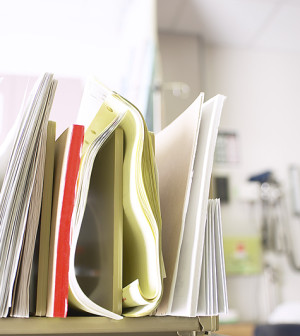- Double Mastectomy May Offer No Survival Benefit to Women With Breast Cancer
- Toxic Lead Found in Cinnamon Product, FDA Says
- Certain Abbott Blood Sugar Monitors May Give Incorrect Readings
- Athletes Can Expect High Ozone, Pollen Counts for Paris Olympics
- Fake Oxycontin Pills Widespread and Potentially Deadly: Report
- Shingles Vaccine Could Lower Dementia Risk
- Your Odds for Accidental Gun Death Rise Greatly in Certain States
- Kids From Poorer Families Less Likely to Survive Cancer
- Tough Workouts Won’t Trigger Cardiac Arrest in Folks With Long QT Syndrome
- At-Home Colon Cancer Test Can Save Lives
Some Teens May Face Emotional Problems After Concussion


Teens who are sensitive to light or noise after a concussion are more likely to develop emotional symptoms such as anxiety and depression, a new study says.
“Identifying factors such as these that may exacerbate issues teens experience after concussion may help in planning for the appropriate treatment and in making decisions about when to return to play and what accommodations are needed at school for these athletes,” study authors Lisa Koehl and Dong Han, of the University of Kentucky in Lexington, said in an American Academy of Neurology news release.
After a concussion, people can have widely varying symptoms. These symptoms can include physical, mental and emotional problems, the researchers noted.
“While most people recover from a concussion within a week, a number of factors affect people’s recovery, and studies have shown that teenage athletes may take up to seven to 10 days longer to recover than older athletes,” the study authors said.
The study included almost 40 young athletes between the ages of 12 and 17. The teens had symptoms for an average of 37 days after suffering a concussion. Of those, 22 experienced emotional symptoms such as anxiety, depression, apathy, aggression, irritability, frequent mood swings or excessive emotional reactions.
There were no differences between the teens with and without emotional symptoms in terms of the percentage who lost consciousness or experienced amnesia, which indicates that both groups had similar levels of concussion severity, the study authors said.
Among the teens with emotional symptoms, 23 percent were sensitive to light and 14 percent were sensitive to noise, compared with 13 percent and zero, respectively, of the teens with no emotional symptoms.
Headache, nausea, family history of mental health problems and the number of concussions suffered were not associated with the risk of emotional symptoms.
Teens with anxiety were 55 percent more likely to report attention problems than those without anxiety, and teens with aggression/irritability were 35 percent more likely to report attention problems than those without aggression/irritability.
The study was scheduled to be presented Friday at the Sports Concussion Conference being held in Chicago, hosted by the American Academy of Neurology.
The researchers noted that this was a small, preliminary study and said a larger study is needed to confirm their findings. Research presented at meetings should be considered preliminary until published in a peer-reviewed journal.
More information
The U.S. National Library of Medicine has more about concussion.
Source: HealthDay
Copyright © 2024 HealthDay. All rights reserved.










